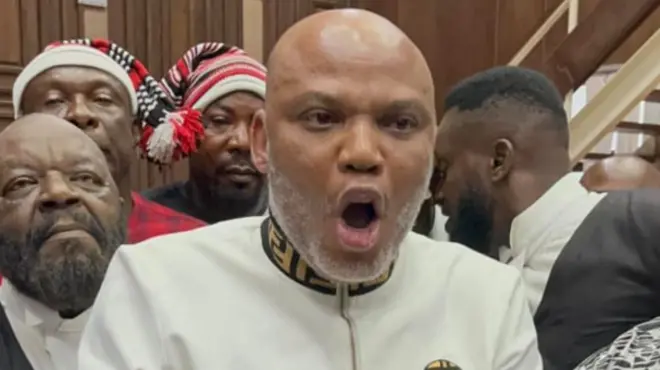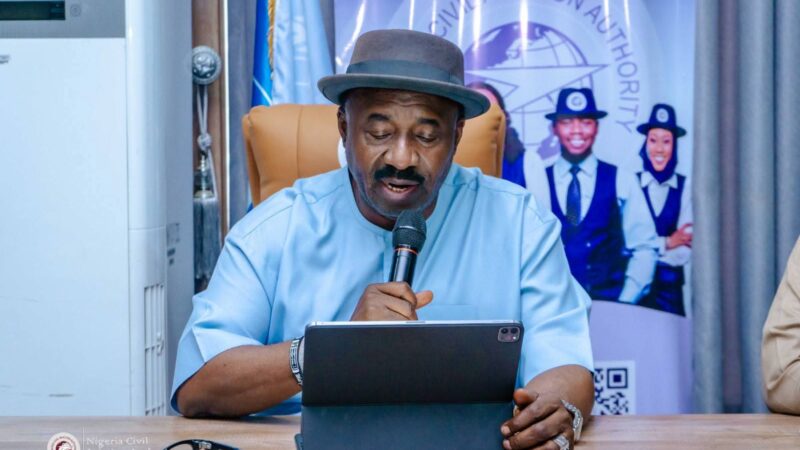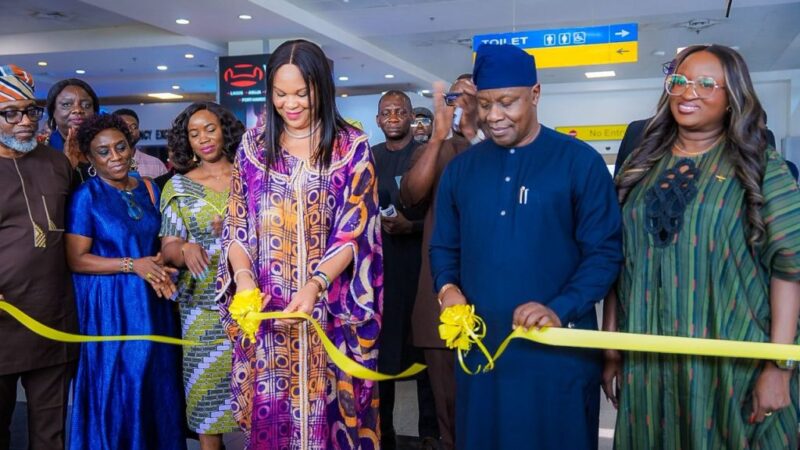Nnamdi Kanu Rejects Nigerian Government’s Bid to Resume Trial

Nnamdi Kanu, leader of the Indigenous People of Biafra (IPOB), has rejected the Nigerian government’s request to resume his trial, citing concerns over judicial propriety.
His special counsel, Aloy Ejimakor, disclosed this in a letter addressed to the Federal High Court and shared on social media on Tuesday.
Kanu, who has been in detention since his controversial rendition from Kenya in June 2021, is facing terrorism-related charges brought against him by the Nigerian government.
His case has been mired in controversy, including allegations of judicial bias and violations of his human rights.
During a court hearing on 24 September 2024, Kanu requested that Justice Binta Nyako recuse herself from presiding over his trial, accusing the judge of bias.
Justice Nyako subsequently stepped down, but the Chief Judge of the Federal High Court reassigned the case to her, sparking objections from Kanu’s legal team.
In a letter dated 5 December 2024, Adegboyega Awomolo, counsel for the Nigerian government, requested the court to schedule a date for the continuation of the trial before Justice Nyako.
However, Kanu’s counsel rejected the move, insisting that Justice Nyako’s recusal remains legally binding.
“Our position is predicated on the fact that Justice Binta Nyako had entered and enrolled an order recusing herself from handling the case,” Ejimakor wrote. “The said order remains extant and has not been set aside by any competent court.”
The government has argued that Justice Nyako’s reassignment is lawful and necessary for the trial to proceed.
In its letter, the prosecution maintained that the case file had been returned to Justice Nyako and sought an immediate hearing date to resume proceedings.
Ejimakor criticised the government’s request, describing it as “fatally misconceived” and potentially misleading to the court. “We are not against trial but insist that Justice Binta Nyako, having recused herself, can no longer preside over the case,” he stated.
Kanu’s legal battles have been ongoing since his initial arrest in 2015 during the administration of former President Muhammadu Buhari.
In a landmark judgement on 13 October 2022, the Court of Appeal in Abuja ruled that Kanu’s extraordinary rendition from Kenya violated Nigeria’s extradition laws and his fundamental rights. The court struck out the terrorism charges and ordered his release.
However, the Nigerian government refused to comply, citing security concerns in the South-East region, where Kanu’s influence is significant.
The government successfully appealed the ruling, and on 15 December 2023, the Supreme Court overturned the acquittal and ordered the continuation of Kanu’s trial at the Federal High Court in Abuja.
The case has drawn widespread attention due to its implications for human rights, judicial independence, and security in Nigeria’s South-East.
Kanu’s detention and the government’s refusal to release him despite court rulings have raised questions about the country’s adherence to the rule of law.
As the legal tussle continues, Kanu’s rejection of the trial resumption underscores the deep divisions and controversies surrounding his case.
The Federal High Court is yet to announce its next steps.







